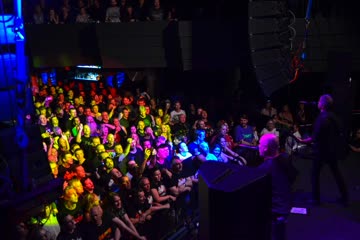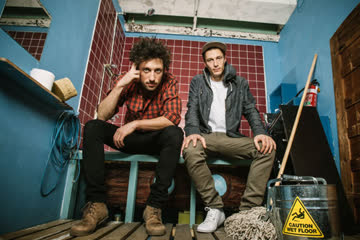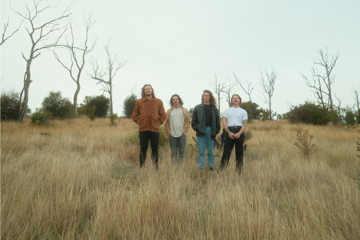Live Review: Thievery Corporation, Klue
"His eyes wide, flicking his tongue and marching with high legs, he looked frog-like in the haze of green light."

Klue opened to a relatively meagre crowd, not yet treated to the garden of sonic delights they were anticipating.
The local multi-instrumentalist coaxed some early birds into catching an early jig with tunes tinged by 2-step, dub and Afro electronica. This was easy listening delivered by a warm-spirited bright star of Australia's music scene.
Thievery Corporation bring with them a cult following. While they are yet to break the mainstream (and probably never will), their trance-inducing instrumentals meander through your head, flow through your body and transport you to an infamous Goan beach party of the '90s.
Veterans of the world music scene, Eric Hilton and Rob Garza have been kicking it together since the mid-'90s when they released an ode to bossa nova, after bonding over their passion for that musical genre. To define their music as bossa nova though would be reductionist; this band cannot simply be defined by the musical stylings they propagate. They are musical backpackers, sojourning through a combination of genres from all across the world.
Don't miss a beat with our FREE daily newsletter
Released in 2017, their most recent album The Temple of I & I demonstrates this same musical parkour, leaping adeptly from reggae to trip hop, from dub to bossa nova and beyond. The live five-piece was extended by a troupe of guest vocalists including Jamaican Racquel Jones whose voice was powerful and prophetic on reggae tracks like Road Block. Another collaborator was Lou Lou Ghelichkhani whose airy French and English vocals carried through the dub-heavy track, Time And Space. Natalia Clavier's smooth and rich timbre matched perfectly with the band's trance-like tracks such as Claridad, part of the band's continual homage to the Brazilian-born bossa nova.
The true crowd rousers were, however, the pure instrumental tracks. Tracks like Mandala and Lebanese Blonde saw a wave of elation filter through the crowd. The sitar mixed with the frenetic percussion with both sides of the stage flooded with drum beats. All the while, bass player Ashish Vyas stomped about the stage with demonic determination. His eyes wide, flicking his tongue and marching with high legs, he looked frog-like in the haze of green light. Guitarist-cum-sitarist, Robbie Myers invited the audience to rise to another level of transcendence. The audience responded in kind, seemingly levitating in the bright white light, moving towards a moment of musically inspired revelation.







